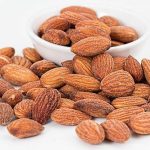The spice cumin is made from the dried seeds of the plant Cuminum cyminum. Cumin is available in both ground and whole seed form at most grocery stores. There are many different colors, including white, green, and brown.
It has a long history of culinary use, dating back thousands of years. Cumin has a unique flavor and smell that has been used in cooking for thousands of years. Although cumin is not typically thought of as being very spicy, it is actually closer to black pepper (3/10 on the spicy scale) than a habanero pepper (10/10 on the spicy scale).
Cumin is a spice that is described by some as having both bitter and sweet flavors, making it a versatile ingredient for many different dishes.
The black cumin seeds, Nigella sativa, are from a different plant family than carrots. They are in the same family as buttercups.
The flavor of smoked cumin is similar to onion, oregano, and black pepper, while regular cumin has an earthy taste with citrus, floral, and/or nutty notes. This article will focus mainly on ordinary cumin. We will also include black cumin because it has many health benefits.
Cumin (Cuminum cyminum L) is a plant that originated in the Middle East. The plant is low growing and has leaves. It is in the same family as carrots and parsley. Cumin is a spice that is traditionally found in China, India, and around the shores of the Mediterranean.
- Cumin was used in ancient Egypt to help preserve mummies. The Bible mentions this in the book of Isaiah (28: 25-27).
- The prophet Mohammed is quoted as saying that the black cumin can heal every disease except for death itself.
Cumin seeds were carried by wedding guests in their pockets as a symbol of love and fidelity.
Cumin was introduced to the diets of Indian, Greek, and Roman populations, and later spread to North and South America through European colonization.
What are the benefits of cumin? And what does the research say about its health attributes?
Nutrition
Iron, magnesium, calcium, and manganese are all minerals that are found in both cumin and black cumin. Cumin is also rich in Vitamin E, A, C, K and B6. And they contain some omega-3 and -6 fatty acids.
Although cumin is often thought of as a spice used to flavor food, it also contains antioxidants which can help to reduce inflammation and prevent oxidative damage in the body. Some of the antioxidants that can be found in plants include alkaloids, flavonoids, phenols, and terpenes.
Impressive Cumin Health Benefits
Cumin may look like a normal spice, but it actually has a lot of great health benefits. There are ten cumin health benefits that you may not be aware of.
1. Improves Digestion
Cumin may improve digestion by:
- Increasing the activity of digestive enzymes.
- Speeding up the digestion process.
- Increasing the release of bile from the gut.
In a study from 2013, it was shown that patients with irritable bowel syndrome who were given cumin essential oil reported improvements in symptoms such as abdominal pain and distension.
IBS is a popular digestive issue where people experience occasional issues with puffiness, gas, diarrhea, irregularity, gut pain, and other changes in elimination habits.
Cumin extract could be a low-cost and practical way to help improve digestive function.
Other studies have shown that black cumin is effective in reducing indigestion, gastrointestinal pain, and a variety of other ailments.
Cumin oil can help reduce complications after stomach surgery.
Cumin seed extract supplements helped resolve diarrhea in rats. This supports the traditional claim that cumin seed is good for helping stop diarrhea.
2. Supports Blood Sugar Management
A number of studies have found that black cumin may help to control blood sugar levels, especially when it is used in conjunction with medication for diabetes.
A study published in 2016 in the International Journal of Molecular and Cellular Medicine found that vitamin E and cumin essential oil had different effects on HbA1C in 95 patients with diabetes. HbA1C is a long-term indicator of blood sugar control. Three groups took either 800 IU vitamin E, 25 mg cumin oil, or a placebo every day for three months. Markers of blood sugar control were measured. Cumin was found to have a greater positive effect on blood sugar control than vitamin E or a placebo.
Another study that was published in 2017, looked at the effects of either taking 50 mg or 100 mg of green cumin essential oil every day for a period of 8 weeks, on both inflammatory markers and blood sugar levels in people who have type 2 diabetes. The researchers discovered that cumin was useful in decreasing fasting blood sugar, HbA1c, and insulin levels, as well as inflammatory markers, for the people involved. The authors came to the conclusion that cumin essential oil could help prevent type 2 diabetes complications.
3. Improves Markers of Heart Health
Cumin may also improve heart health. Studies indicate that regular use of cumin reduces certain risk factors for heart disease, such as obesity and blood lipids.
A study done in 2018 found that 40 people with Hashimoto’s thyroiditis, which is a condition that causes cholesterol levels and blood sugar control to be significantly altered, either received two grams of black cumin seeds in powder form or a placebo every day for eight weeks.
Cumin can help with weight reduction, lowering LDL cholesterol levels, and reducing serum triglycerides. Cumin supplementation also saw a significant increase in HDL “good” cholesterol levels after eight weeks.
A review from 2018 concluded that cumin is a safe and potentially effective way to manage blood fats and improve heart health.
6 randomized controlled trials were reviewed by the authors, which included a total of 376 participants. It was found that cumin supplementation lowered total cholesterol and LDL “bad” cholesterol levels effectively.
4. Promotes Healthy Skin
Cumin may help to keep skin healthy. Cumin seeds have a high concentration of antioxidants, according to research.
Cumin contains properties that can help soothe the skin and prevent inflammatory skin conditions and allergies. These properties include being antifungal, antibacterial, and anti-inflammatory.
If you want to get more antioxidant benefits from cumin, you can use it in an antioxidant-rich spice blend. You can add some extra flavor to your salads and vegetables by sprinkling them with some of this while you’re cooking.
Cumin oil applied topically can help to keep your skin moist and elastic.
5. Boosts Immunity
Vitamin C in cumin helps to boost your immune system by stimulating the production of white blood cells. White blood cells help protect the body from illness by fighting pathogens.
The high levels of vitamin C in cumin could be due to their active ingredient, Cuminaldehyde. This compound has also been shown to have an anti-inflammatory effect on cells and tissues.
Vitamin C and vitamin A work together as powerful antioxidants to fight free radicles and prevent oxidative stress that may cause disease. Luckily, vitamin C and vitamin A are both found in cumin.
The plant also has antifungal and antibacterial properties that can help fight infections and diseases.
6. Prevents Foodborne Illnesses
Other spices such as oregano, clove, thyme and cinnamon, contain antimicrobial properties that prevent and fight against food spoilage, bacteria and fungi, similarly to cumin.
Cumin is one ingredient in many cuisines that can help keep food safe. Many spices and herbs are effective at preventing foodborne illnesses by killing bacteria, which is especially important when dealing with meats.
A small amount of cumin can help keep you safe from foodborne illnesses. Studies have shown that cumin can help reduce the amount of E. coli and salmonella bacteria in food, so you can feel more confident when sharing a meal with others.
Ingesting cumin can also help fight off infections due to the release of Megalomicin, a compound with antibiotic properties, during digestion.
Cumin has many good health properties and is an essential spice for any kitchen.
To keep your spices flavorful and effective at preventing illness, be sure to store them properly. If you store your spices in a cool, dark place, they will last longer and remain effective.
7. Prevents Diabetes
Cumin can help prevent type 2 diabetes by reducing blood sugar levels.
When you have type 2 diabetes, your body cells become resistant to the effect of insulin. This causes your blood sugar levels to become high. Cumin can help regulate blood sugar levels and reduce the risk of type 2 diabetes.
Other studies have shown that cumin may help to improve glucose tolerance and insulin sensitivity in people who have diabetes.
An addition of half a teaspoon of ground cumin powder to food daily resulted in lower fasting blood glucose for people with diabetes, in comparison to those who didn’t consume the powder.
Research found that rats who were fed high cholesterol diets and supplemented with 10 percent whole cumin seed powder experienced significant reductions in total cholesterol, LDL (bad) cholesterol, and triglycerides compared to rats who were not receiving any cumin supplementation.
In a study done in 2017, it was found that administering cumin capsules in doses of 50-100mg per day resulted in decreased fasting blood sugar levels, as well as decreased levels of HbA1c and insulin in the blood.
8. Aids Weight Loss
Cumin can not only help make your food more flavorful, but it can also help you lose weight. It has properties that suppress your appetite and help you burn calories faster.
A study found that women who ate yogurt with 3 grams of cumin twice a day lost more weight and body fat than a control group.
An eight-week study reported that adults who took a cumin supplement three times a day lost 2.2 pounds (1 kg) more than those who took a placebo.
They think the positive effects might be because of some of the chemicals in cumin seeds, like thymoquinone and phytosterols like beta-sitosterol and campesterol.
Consuming cumin on a regular basis could help manage your blood sugar, promote weight loss, and lower your cholesterol. Additionally, cumin may improve your metabolism.
Conclusion
Cumin is a spice that is used in many different dishes to add flavor and aroma. It has been shown to have many potential health benefits and has very few potential side effects.
There have been many studies done on the health benefits of cumin essential oil and black cumin oil, both of which have shown to be very beneficial to one’s health.
In addition to the benefits cumin may have in regards to inflammation and weight loss, there is also evidence to suggest that cumin has health protective properties.
Cumin is a great staple to have in your pantry if you want to add some flavor to your cooking. The best part about cumin is that it tastes amazing.
READ MORE: Just Beet It: 15 Amazing Health Benefits









